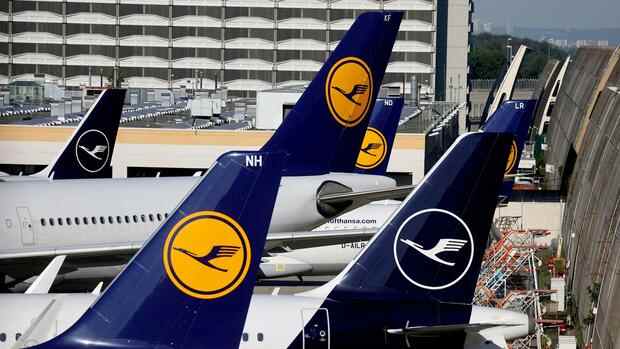Frankfurt Lufthansa carries out its announced capital increase. From September 22 to October 5, shareholders are to be given the opportunity to purchase new shares at a price of EUR 3.58. There should be a new one for an old share. The group is hoping for gross issue proceeds of 2.1 billion euros. The company announced this on Sunday evening after a board meeting.
Lufthansa boss Carsten Spohr is thus getting closer to his goal of quickly replacing state aid. The manager had announced the ambitious plan in the summer to implement this, if possible, before the general election on September 26th. It is exciting to see how many investors will participate in the capital increase.
However, the capital increase can no longer be overturned. According to the announcement, a consortium of 14 banks has fully guaranteed the measure. In addition, several investment funds managed by the US company Blackrock have signed a so-called sub-underwriting contract for a volume of 300 million euros and have undertaken to exercise their subscription rights in full. The board members will also exercise their subscription rights in full.
Originally, the management wanted to collect up to three billion euros. But the response from investors was muted. They don’t quite trust the recovery of aviation yet. Premium airlines like Lufthansa are heavily dependent on business travel and travel to North America. Here the borders for Europeans are still tight.
Top jobs of the day
Find the best jobs now and
be notified by email.
That’s why Spohr and his team lowered expectations. The replacement of state aid is nonetheless firmly planned. Lufthansa has been able to secure some money for itself in the past few months through bonds and other measures.
Lufthansa raised a lot of money through bonds
Like all aviation, Lufthansa was hit very early and very severely by the pandemic. The German state, together with Switzerland, Belgium and Austria, had to help the “Hansa” with up to nine billion euros. The airline group has drawn four billion euros of this, but has already repaid one billion to the state-owned KfW Bank.
The capital increase, together with the bonds already issued, is intended to provide the necessary leeway to replace the state aid and at the same time strengthen the sharply shrunk equity capital. Once the aid has been paid back, the shackles in the group are loosened. Only then can the group, for example, make major acquisitions again. Dividend payments to joint venture partners, which are currently prohibited, are also possible.
The airline manager is getting closer to his goal of quickly repaying the state aid.
(Photo: imago images / Lackovic)
And bonuses should flow back to management and executives. Many Lufthansa employees have planned their variable remuneration for their old-age provision and are frustrated because the funds are lacking. This has caused severe bloodletting in individual departments.
The federal government, which had got 20 percent on Lufthansa in the course of the rescue, will, however, stay on board a little longer. The Economic Stabilization Fund (WSF) began a few weeks ago to sell shares from its 20 percent Lufthansa stake. But he will probably use the money that is raised to buy new shares. The WSF, which currently holds 15.94 percent, could prevent its stake from being diluted for the time being.
There is a reason for the somewhat strange-looking approach: the competition watchdogs would probably not just watch if politicians were to use additional taxpayers’ money to buy more Lufthansa shares. Using the proceeds from the sale of some shares – a so-called “opération blanche” – should cause fewer problems in Brussels.
Lufthansa wants to attract more private travelers with a new brand at the major hubs in Frankfurt and Munich.
(Photo: dpa)
The WSF has undertaken to start selling its shares at the earliest six months after the capital increase has been completed, if it participates in the capital increase, Lufthansa said. The entire sale must be completed no later than 24 months after the capital increase has been completed.
The procedure has been laid down in the WSF framework agreement for the Lufthansa rescue. The WSF has a fundamental obligation to sell all of its shares by the end of 2023, if Lufthansa requests it and the state aid has been paid off. The sale is possible in several steps, for example by selling the shares to the existing shareholders via subscription offers or a private placement to “qualified investors”.
However, the condition is that a minimum price can be achieved with the shares. That is 2.56 euros – that is the price at which the WSF started in 2020 – plus a price increase of twelve percent per year. As of today, this hurdle could be overcome without any problems. After one year, the WSF shares would have to bring in EUR 2.8672, after two years EUR 3.21. On Friday the papers cost around 8.34 euros.
If, contrary to expectations, the WSF does not exit by the end of 2023, Lufthansa has a so-called exit entitlement. The group can then name investors willing to buy to the WSF and demand that they take over the shares at the minimum price.
More: New offers, good numbers: the pandemic is fueling the trend towards low-cost airlines
